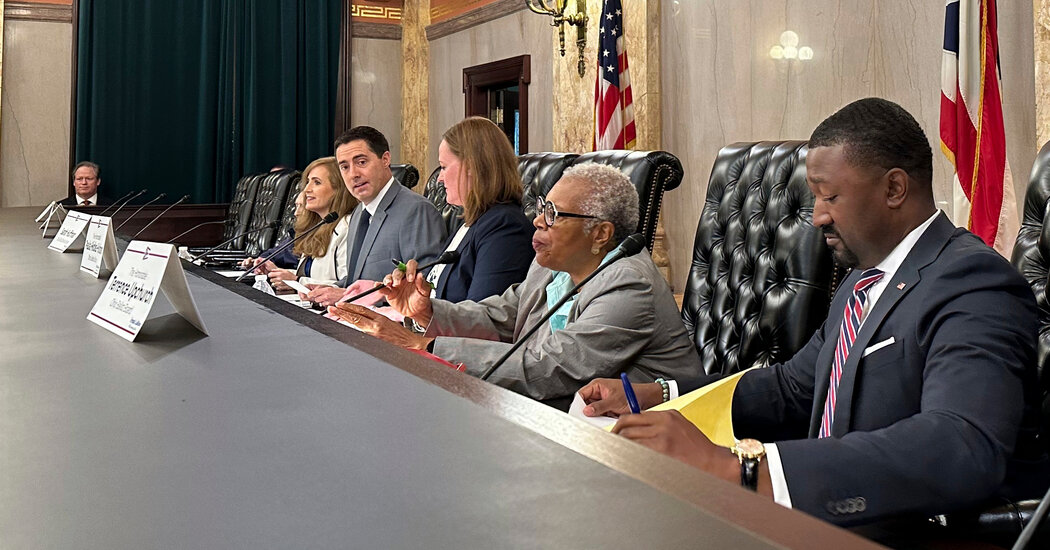Voters in Ohio rejected a ban on partisan gerrymandering of state legislative and congressional districts on Tuesday, according to The Associated Press, after a ferocious battle that included accusations of political trickery.
The Ohio ban was perhaps the most closely watched in an unusually consequential list of democracy-related issues presented to voters in ballot initiatives and amendments to state constitutions.
Before the proposed amendment appeared on voters’ ballots, polls showed that the idea had broad approval among the state’s voters. But Republicans, who dominate Ohio politics, pushed back, crafting what critics called a misleading summary of the proposal that appeared on the ballots. It said the measure would establish a “taxpayer funded” commission that would be “required to gerrymander the boundaries of state legislative and congressional districts.”
After supporters of the gerrymandering ban sued, the Ohio Supreme Court’s four Republicans voted to uphold the language; the three Democrats voted to strike it down.
Elsewhere, The Associated Press reported, proposals to alter election systems in ways supporters said would promote moderation and reduce partisanship largely met bleak fates.
Alaska voters narrowly approved a proposal to repeal both the state’s election system of ranked-choice voting, in which voters rate candidates in their order of preference, and its open primaries, in which candidates of all political stripes could participate.
Supporters of ranked-choice voting and open primaries poured millions of dollars into campaigns against repeal, and the first elections under the new system, in 2022, produced a state legislature that was notable for bipartisanship.
But Republicans lined up in favor of repeal, arguing that ranked-choice voting was unfair in part because it had allowed a Democrat, Mary Peltola, to win election to Congress in 2022 in a state dominated by Republicans.
In six other states — Nevada, Arizona, Colorado, Idaho, Montana and South Dakota — proposals to move to open primaries, sometimes including ranked-choice voting, were all defeated.
In Arizona, voters doubled down on their rejection by approving another measure that explicitly banned open primary elections.
In two other jurisdictions, Oregon voters rejected and Washington, D.C., voters approved switching elections to ranked-choice voting.
